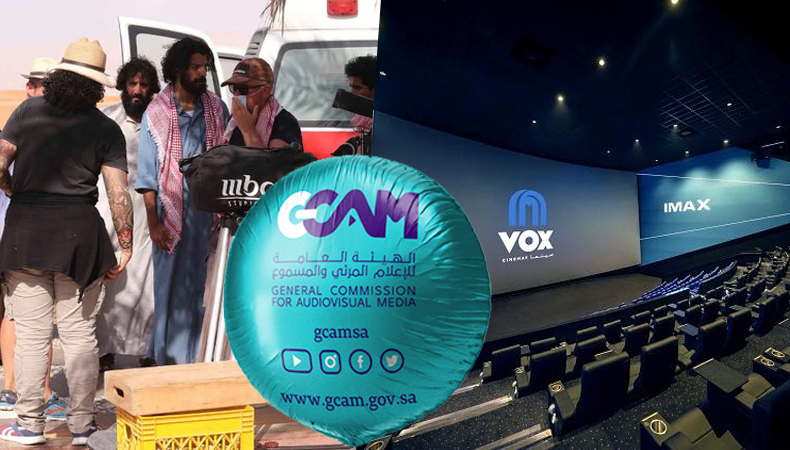The Saudi film industry is about to take off

Four years ago, as part of its Vision 2030 initiative, Saudi Arabia reopened its cinemas for business. While the film industry is now flourishing, the Kingdom must do more to empower production firms in the long run and open up decentralised sources of funding if it is to benefit the most from the expanding market.
In 2018, the government declared that theatres would once again be permitted to open in Saudi Arabia as part of the Kingdom’s Vision 2030 modernisation initiative. After 35 years without movies, the decision ended that, and the first cinema in Riyadh opened its doors just four months after the prohibition was lifted.
The population of nearly 35 million people has welcomed the new entertainment prospects in the four years since the first commercial screening of “The Pink Panther,” and in its wake, a completely new domestic economy has formed.
Around 350 cinemas and 2,500 movie screens are anticipated to exist in the nation by 2030, according to the General Commission for Audiovisual Media (GCAM), the governing body responsible for overseeing and operating cinemas. The Kingdom must open at least 32 new theatres year in order to achieve this aim.
Read | Saudi Arabia Might Pay Heavily Over Decision To Cut Oil Production As OPEC+ Leading Member
The organisation projects that the expanding sector will soon be worth about $1 billion as it recovers from a pandemic slump, and the Kingdom more broadly forecasts that household spending on entertainment will double from current levels to account for 6% of GDP by the end of the decade.
According to a recent study by Saudi management consultancy Strategic Gears, getting there is harder said than done. Like any functioning market, a vibrant film industry requires more than just huge conglomerate companies producing pricey blockbusters. Additionally, a greater number of independent production businesses are needed, and due to the historically top-down economics of the Kingdom, the Saudi film industry is currently lacking in this area.
Through its legislation and funding of the arts, the Kingdom continues to impose stringent censorship on Saudi films. Film financing in the Kingdom is still inextricably linked to the Saudi state because there isn’t a pre-existing private sector for the production of movies. As a result, there are a number of rules.
Currently, three government-backed organizations—the Red Sea Film Festival, a new film commission run by the Saudi Culture Ministry, and the King Abdulaziz Center for World Cultures—can provide financial and artistic support to production businesses.
In light of this, a recent study by the British Council in Saudi Arabia indicated that 43% of participants named a lack of commercial finance as one of the major challenges to the growth of the film industry.
The Saudi box office is nearly entirely dominated by foreign productions, which reflects this. Additionally, this is not just a natural outcome of letting international blockbusters screen in theatres. While “Spiderman: No Way Home,” a staple of the US studio system, did well in Saudi Arabian theatres in 2021, it was an Egyptian production called “Waafet Reggala” (also known as “A Stand Worthy of Men”) that won the box office with a $15.1 million take.




